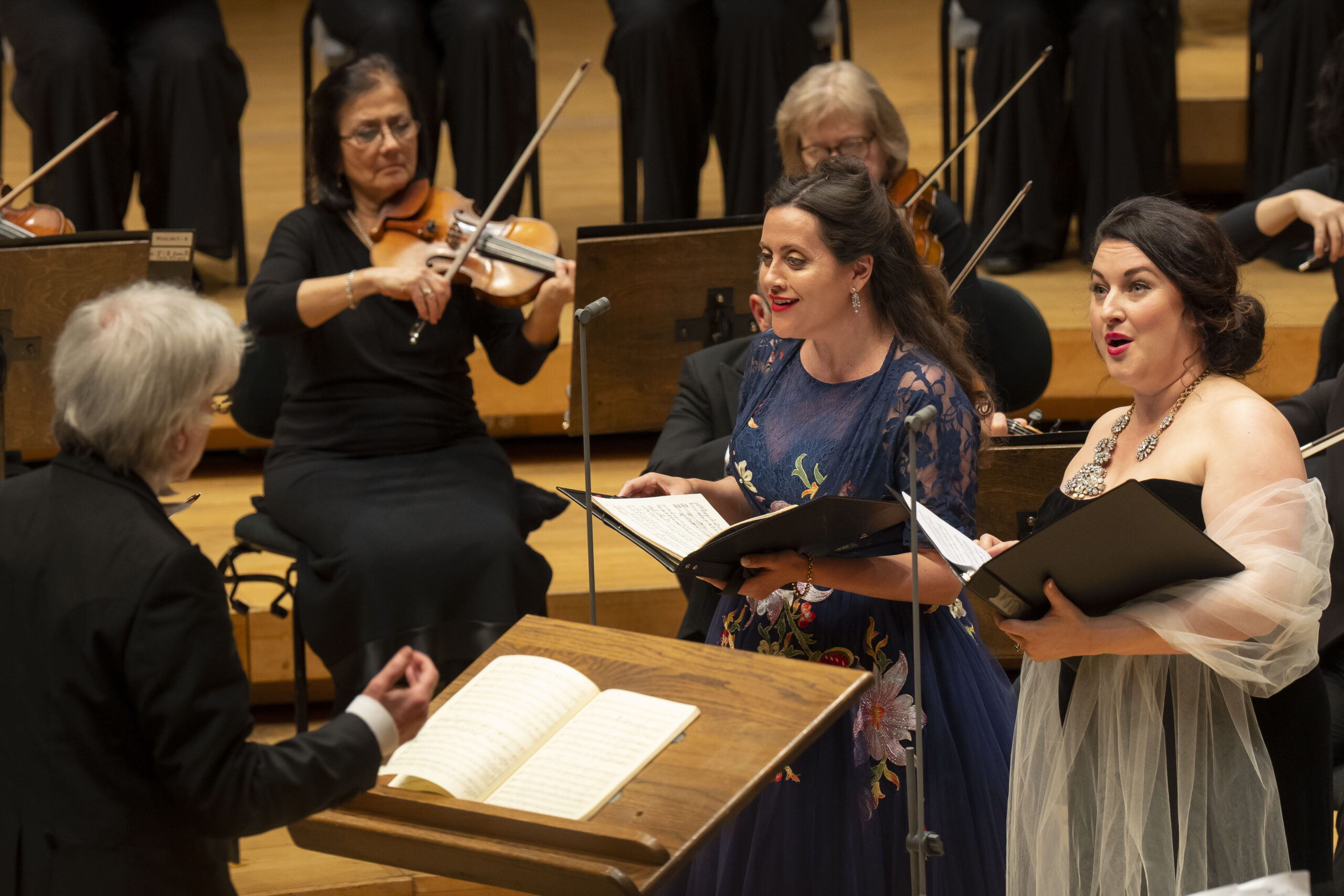A variable Vivaldi evening with Antonini, CSO

After substantial helpings of Rachmaninoff and Shostakovich the past two weeks, Thursday’s Chicago Symphony Orchestra program offered leaner fare. Guest conductor Giovanni Antonini of the Milan-based baroque ensemble Il Giardino Armonico led an all-Vivaldi program of (mostly) sacred choral works seldom or never before heard at Orchestra Hall.
While it was an engaging change of pace to hear such music on a subscription night downtown, devoting an entire evening to Venice’s “Red Prince,” whose oeuvre has a justified reputation for self-similarity, ultimately felt like a questionable choice.
The orchestra opened with its first-ever performance of the Sinfonia from La Senna festeggiante. Vigorous outer movements frame a meditative central interlude in this brief tripartite score, where Antonini drew gracious playing from the CSO strings, particularly in the opening “Alla francese.”
A decade ago, Riccardo Muti led the CSO premiere of Vivaldi’s Magnificat, and Thursday was the orchestra’s second outing with Vivaldi’s setting of Mary’s words to her sister Elizabeth. Whereas mezzo-soprano Alisa Kolosova was the soloist under Muti, Antonini divided the solo duties among three singers—sopranos Amanda Forsythe and Yulia Van Doren, and mezzo Sasha Cooke—with the sopranos each taking a short aria and Cooke mostly in the spotlight.
While all sang with poise, the overall impression was necessarily less cohesive than with a single soloist. Forsythe and Van Doren are Baroque specialists, possessing somewhat thinner, more nimble voices, while Cooke’s aesthetic is decidedly more operatic. Each individually made a case for their approach, but the sum of the parts was not unified. The CSO Chorus, prepared for the occasion by guest director James K. Bass of Seraphic Fire and UCLA, provided a necessary and welcome consistency, from the strongly projected opening invocation to the closing “Gloria Patri.”
The same could not be said for the chorus in Vivaldi’s austere Kyrie, which was heard in its CSO premiere. There were uncharacteristically pitchy moments from the vocal ensemble, particularly when navigating Vivaldi’s close dissonances, resulting in an anemic collective timbre. Antonini also failed to give Vivaldi’s indifferent setting the help it needs to come off, with the performance feeling repetitiously monochrome.
Things got back on track with the composer’s Gloria, which had not featured on a CSO program for almost 40 years. Antonini led a subtly varied account that emphasized Vivaldi’s pungent harmonic pivots and drew responsive playing from instrumentalists and singers alike. The score’s oboe and trumpet parts also brought welcome sonic variety to an evening otherwise cast for strings and continuo.
All three soloists were back in fine form as well. Forsythe and Van Doren were a simpatico pair in the imitative “Laudamus te” (the sole movement calling for two singers). Forsythe delivered the evening’s highlight in her luminous rendering of the “Domine Deus” in supple dialogue with William Welter’s refined obligatto playing.
Cooke’s robust tone was deployed well in the “Domine Deus, Agnus Dei,” which Vivaldi ingeniously sets in conversation with the chorus intoning the “Qui tollis.” An uplifting “Cum Sancto Spiritu” from chorus and orchestra brought the night to an elevated conclusion, though it was difficult to imagine anyone in the audience throwing on just a little more Vivaldi to accompany their ride home.
The program repeats 8 p.m. Friday and Saturday, and 7:30 p.m. Tuesday. cso.org
Posted in Performances



Posted May 06, 2023 at 12:08 am by Marco Carvalho
I just came back from the Friday performance and was impressed with how Antonini brought the whole ensemble into a more baroque sound, with moderate dynamics and tempo variations. The repositioning of the instruments added to the stereo effects of multiple voices in the orchestra and chorus. By reading this review, today’s concert sounded more intentional to me.